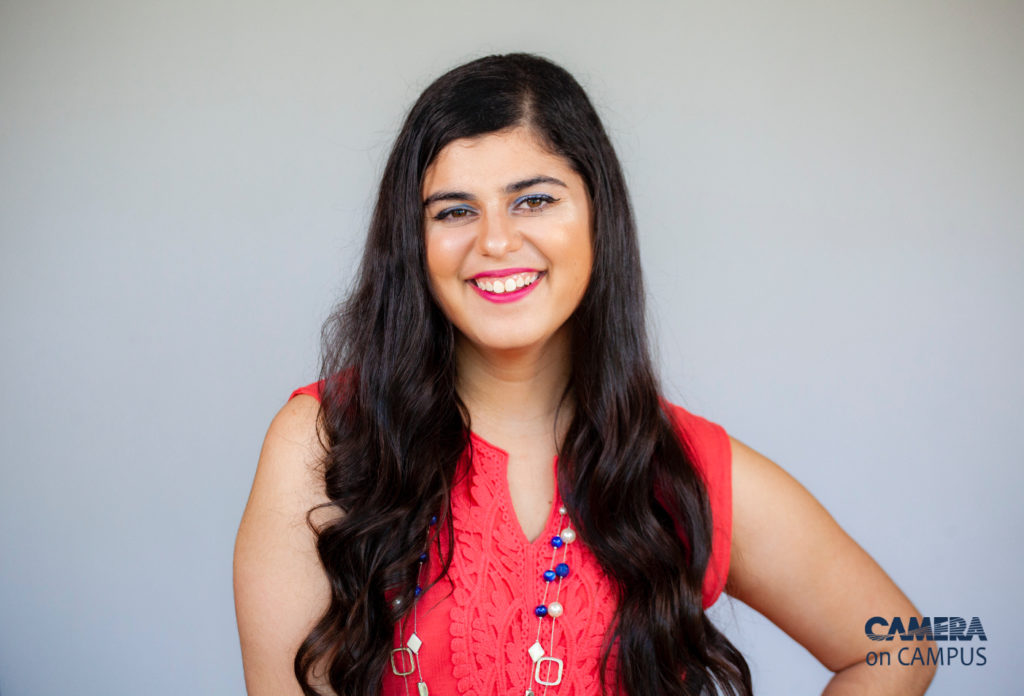
One year after UCLA hosted the National Students for Justice in Palestine (NSJP) conference, Students Supporting Israel (SSI) at UCLA has focused on remedying the damage caused by the former’s denouncing of Jewish self-determination in the name of Palestinian liberation through hosting Israeli-Arab peace activist Yoseph Haddad on campus.
Haddad’s appearance at UCLA comes to light following multiple reports on the recent wave of antisemitism plaguing university campuses across the nation. Between students passing an anti-Jewish resolution, mocking a Holocaust survivor, boycotting kosher food on campus, and many more unsettling incidents, this rhetoric is eerily reflective of that espoused in the past NSJP conference at UCLA, where attendees chanted for intifada, the violent uprising against Jews in Israel.
Having reached the one year anniversary of the conference, UCLA students set to challenge the mainstream campus dialogue surrounding the Israeli-Arab conflict, which has often lent itself to these incidents. In partnership with the Committee for Accuracy in Middle East Reporting and Analysis (CAMERA), SSI at UCLA created a space for dialogue concerning the intersectional and diverse nature of Israeli Arab society. This serves to counter the recent claims made by a guest lecturer at UCLA equating Zionism and support for Israel directly to white supremacy.
As an Arab Christian citizen of Israel hailing from Haifa, Haddad served in the Israeli Defense Forces despite not being required by law to serve. During his voluntary service, he lost his foot in combat during the Second Lebanon War. Following this incident, Haddad has focused his life’s work into creating the nonprofit for young Israeli Arabs called Vouch for Each Other, a group including Christians, Muslims, Druze, and Bedouins. The goal of the organization is to reconstruct the negative sentiment Arabs feel towards Israel, which does not accurately represent the reality of their country, and instead connect Arab Israeli society with Israeli society at large.

When starting his talks, Haddad does not always state his identity as an Israeli Arab. This way, he strategically dismisses the common challenge that he only supports Israel due to his perceived Jewish roots, when his actual background is eventually brought up.
Why defend Israel then? One month before his enlistment, a suicide bomber killed 21 people and injured 51, including four Arabs, in a crowded restaurant in Northern Israel. It was then when he realized that when a suicide bomber kills, they do not think about the demographic of their casualties. On the same token, he mentions, “When I joined the IDF I wasn’t defending Jewish people, Christians or Muslims. I was defending Israel.”
Appearances by activists such as Haddad are meant to broaden the base of support for Israel to the collective campus community past UCLA’s Jewish students. Showcasing an Israeli Arab who has witnessed the effects of the overall conflict firsthand, SSI at UCLA’s initiative alongside CAMERA allows for a free exchange of ideas in the necessary step towards peaceful discourse on this matter.
Yet upon analyzing the audience of Haddad’s talk, it is disappointing to see the small amount of Arab or Palestinian representation of those in attendance. This can be a result of the many barriers instituted to prevent proactive conversation, such as anti-normalization policies held by members of SJP. In this, dialogue with Zionists is blocked due to the belief that this engagement legitimizes Israel’s right to exist. Co-founder of SJP, UC Berkeley Professor Hatem Bazian has even gone as far to warn that interfaith dialogue should be avoided with Jewish groups, given that it could lead to the normalization of Zionism.
When we discourage peaceful discourse, we perpetuate conflict by eliminating any chance to depolarize the issues at hand. Alternatively, by providing an arena where students of all backgrounds can participate in open-minded dialogue regarding the Israeli-Arab conflict, we can be one step closer to ending this self-sustaining cycle of animosity. Perhaps NSJP should take this in consideration after their decision last year to kick out Jewish activists in attendance at their conference at UCLA.
By taking the initiative to host a speaker who does not possess the typical Jewish heritage of most pro-Israel activists, SSI at UCLA and CAMERA have underwent the next step to overcome the misguided rhetoric often perpetuated in stiflingly one-sided academic circles on college campuses. And in doing so with those who reject anti-normalization policies, we can witness the very humanization it lends to all parties within the conflict: Israeli, Arab, or both in the case of Haddad.
“When we discourage peaceful discourse, we perpetuate conflict by eliminating any chance to depolarize the issues at hand.”
To Palestinian student groups: host an Israeli. Host a Druze. Host a soldier. We never realize what is happening on the ground from our partial scope of understanding shaped by what we only see in the media. Just like Haddad’s engagement, host an individual from a different background and have an open Q&A. Only when we have these peaceful exchanges of ideas can we take a nuanced and comprehensive approach to solving the issue at hand.
Contributed by 2019-2020 University of California – Los Angeles CAMERA Fellow Jessica Khalili.
